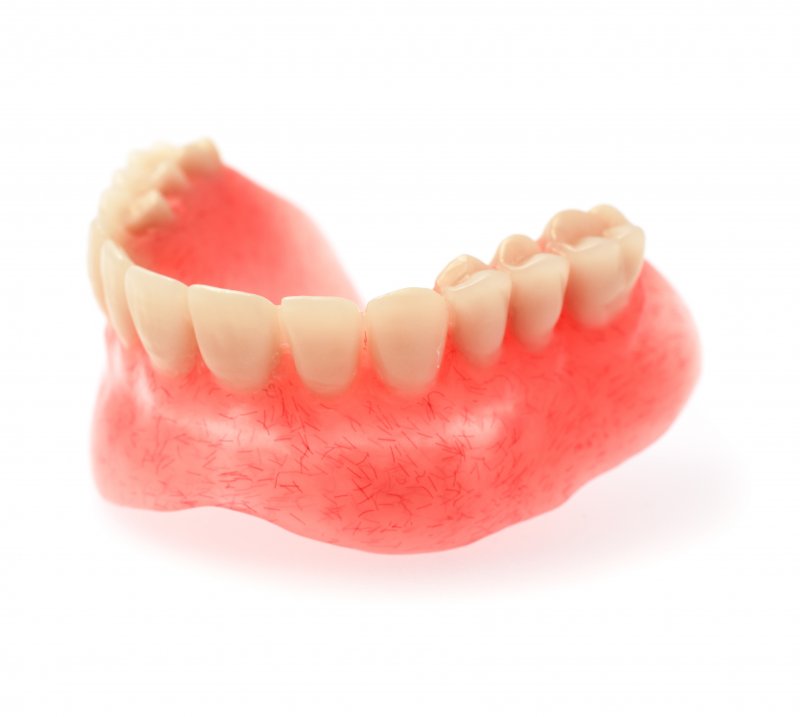
Dentures are a tried-and-true tooth replacement solution that has been around for centuries. While the materials and techniques used to create these unique prosthetics have changed, their goal to ensure full, complete smiles remains the same. Unfortunately, ill-fitting dentures can leave you wondering what happened and if they can provide what you truly want and need from a dental prosthetic. Here are 3 potential complications you could face should your dentures no longer fit as they should.
Potential Pitfalls of Ill-Fitting Dentures
When wearing dentures, they should feel comfortable inside your mouth and allow for normal functionality when eating, speaking, and smiling. However, if you begin to notice any of these problems, there’s a good chance your prosthetic no longer fits as it should, and you should get in to see your dentist as soon as possible.
- Slurred speech: It is normal in the beginning to notice a slight change in the way you speak. After all, your tongue, jaw, lips, and cheeks need to adjust to this new foreign object in your mouth. However, this should only be temporary. If you begin to notice, over time, that your speech becomes slurred or a lisp forms, your dentures no longer fit correctly. When loose, they will cause this type of change to occur, resulting in embarrassment when surrounded by others, especially if they accidentally fall out.
- Damaged teeth: If you wear a partial and it begins to feel awkward in your mouth or uncomfortable, you could potentially damage your other natural teeth in the process. These prosthetics are designed to fit into place among the rest of your smile. If changes to your facial shape occur and leave you with a poorly fitted partial, it will not only cause chips or cracks but also thin the enamel of your natural teeth.
- Difficulty eating: Dentures alone only provide a certain level of bite force when put into place. However, should they become less effective and no longer fit correctly, you may be unable to enjoy some of your favorite foods. Ill-fitting dentures make it much harder to consume certain foods. This will not only leave you unhappy with your prosthetic but also lacking the necessary nutrients your body needs.
Why You Should Regularly See Your Dentist
Seeing your dentist regularly for checkups and cleanings will help you avoid these problems. Even if you wear full dentures and have no natural teeth left, your dentist is your greatest ally and can examine your prosthetics to ensure no issues are forming that might lead to sores, swelling, or difficulty performing various daily functions.
Although it is true that dentures will not last forever, you’ll need to be mindful of the changes that occur that might cause your artificial teeth to become loose, slip, or simply no longer fit as they should. By recognizing the signs and staying in contact with your dentist, you can continue to move through life with a happier smile and better oral health.
About the Author
Dr. Joanne Bancroft has been practicing dentistry since 2003. Earning her dental degree from the State University of Buffalo School of Dental Medicine in 2002, she completed a General Practice Residency at the University of Colorado School of Dental Medicine. She earned the recognition of being one of Westminster’s Top 3 Local Dentists in 2019 as well as one of Colorado’s Top Dentists in 2020. When it comes to assisting a patient with ill-fitting dentures, she can ensure optimal results every time. Because tooth loss can be debilitating, she and her team can quickly work to provide a relined or new denture that allows for a more enjoyable experience. If you’re suffering from dentures that no longer fit like they once did, contact us at (720) 458-6561.
